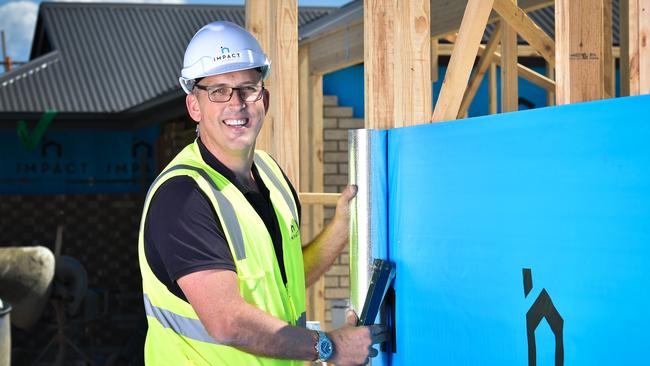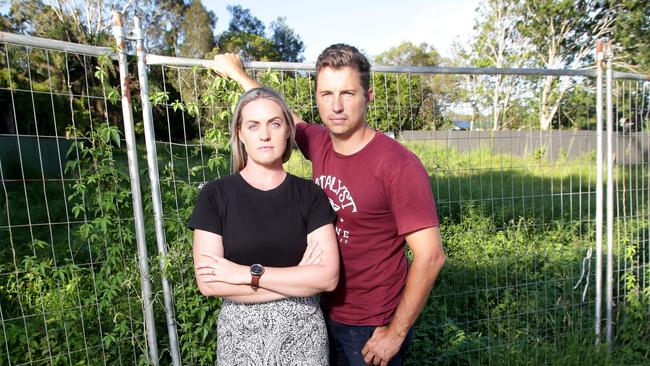Privium Group boss Rob Harder tells clients and suppliers he is ‘deeply sorry’
The boss of Privium Group has apologised for placing the company into voluntary administration which he acknowledged would create ‘real difficulties’ for clients and suppliers.
QLD Business
Don't miss out on the headlines from QLD Business. Followed categories will be added to My News.
Privium Group was using Bartercard to help fund operations as it careered towards a multimillion-dollar collapse raising red flags about its finances months before it called in administrators.
The Queensland-based company had $3.4m of Bartercard “currency” at cost on its books as of June last year, which it intended to use to run the company.
Privium CEO Rob Harder called in voluntary administrators over a number of Privium companies in the group on Wednesday.
“I understand that this is not the news you wanted to hear and that this will create real difficulties,” he told clients and suppliers in a Facebook post.
“For this I am deeply sorry.
“This decision was made because if I had delayed further, it would have disadvantaged our clients even more. My priority is to ensure that all homes under construction are completed, and to alleviate as much as possible, angst and complications.
“With all of the rumours making it difficult to operate, appointing administrators now means that new builders can come in under the government’s insurance program and complete the homes.
“I have already started working to make this happen.”

He said the appointment of John Park, Joanne Dunn, and Kelly Trenfield from FTI Consulting was made following specialist advice and prior consultation with stakeholders.
The Privium collapse has left hundreds of homes in Queensland, Victoria and New South Wales unfinished.
The company was one of the Top 20 builders of detached homes in the country.
In Queensland there are about 160 unfinished homes and according to industry estimates, subbies could be owed more than $20m.
The FTI administrators said they would conduct an independent assessment of Privium’s finances and make recommendations about its future.
“The administrators are mindful Privium is contracted to build a large number of residential homes in various stages of construction,” FTI said in a statement. “People who have entered into contracts for these homes will have understandable concerns.”
FTI said it will work closely with the regulators in Queensland, New South Wales and Victoria to ensure individuals receive assistance and, if appropriate, have their properties completed by an alternative builder.

Annie and Raf Solomon last year knocked down their existing home at Birkdale in Brisbane‘s bayside suburbs to make way for a new house that was supposed to be built by Privium.
But almost a year after signing a contract and paying a $12,000 deposit, they are still living in rental accommodation and desperately trying to locate another builder.
“There were constant delays from the builder and they just did not return phone calls,” said Ms Solomon, who has two young children.
“We were supposed to be in the house by now. Our dog has had to be housed away from us during this whole time because we are in a unit.”
Ms Solomon said the best the state’s industry regulator – the Queensland Building and Construction Commission (QBCC) – could do when the couple contacted them was to advise them to seek legal advice.

Subbies United director John Goddard said the Privium collapse would affect hundreds of subcontractors owed money.
“We want a real investigation. Without that no one will know what’s going on,” he said. “The hope is that an investigation takes place and people then realise what went on.”
The QBCC said that people with building contracts with Privium could make a claim under the Queensland Home Warranty Scheme, or transfer their contract to another builder.
A spokesman said the QBCC recommended homeowners seek legal advice to ensure they validly terminate their contract with Privium, so as not to potentially affect any future claim under the Queensland Home Warranty Scheme.
The spokesman added Queensland had some of the toughest laws in Australia to protect consumers from potential builder insolvency. “There are stringent financial requirements in place for all QBCC licensees, and our statutory insurance scheme protects homeowners in the event of a builder insolvency,” the spokesman said.
Privium, which has not filed its financial accounts for the most recent financial year, reported a $28m loss in the 2019-2020 financial year and paid more than $22m in dividends.




